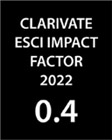Industrial policy revival in France: new dilemmas, challenges and instruments
DOI:
https://doi.org/10.17649/TET.34.1.3158Keywords:
reindustrialization, industrial policy, innovation, Mittelstand, medium-sized enterprises, startup businesses, FranceAbstract
France, which tends to regard the German Mittelstand companies not merely as ‘rolemodels’ but competitors, has recently embraced reindustrialization after abandoning its previous colbertist development model. The main foci of the ‘new industrial policy’ are intermediate-sized companies (ETI) and start-up firms. The negative impacts of deindustrialisation, exacerbated by the 2008 crisis, have generated much controversy about the necessity and methods of state intervention. Catching up with the decentralized German state by implanting the highly competitive Mittelstand model poses a significant challenge for France owing to its strong tradition of centralization. Analyses have demonstrated a strong interrelationship between relative industrial underdevelopment and the weakness of innovative performance. Therefore, the main target of state institutions and funding mechanisms is to ameliorate industrial innovative performance. Albeit some controversy remains, there is growing support in favor of a more active industrial policy and state-subsidized industrial innovation. Currently, there is a plethora of economic andindustrial policy-related instruments and institutions whose role is to ameliorate the business environment which risks a fragmentation of resources. French industrial policy is currently oscillating between financing medium-sized and large companies and supporting the dynamicgrowth of start-ups through targeted interventions. Both approaches share an overriding concern for innovation. It is still dificult to measure the eficiency of economic and development policy interventions targeting the modernization of the business environment and infrastructure underpinning France’s innovation-led industrial policy. It is of utmost importance to understand the operation of local, regional business infrastructure, education and vocational training systems that might enhance innovation and industrial performance in indirect yet highly eficient ways.
Downloads
Published
How to Cite
Issue
Section
License
Copyright (c) 2020 Ildikó Egyed, Péter Póla

This work is licensed under a Creative Commons Attribution 4.0 International License.
Authors wishing to publish in the journal accept the terms and conditions detailed in the LICENSING TERMS.






